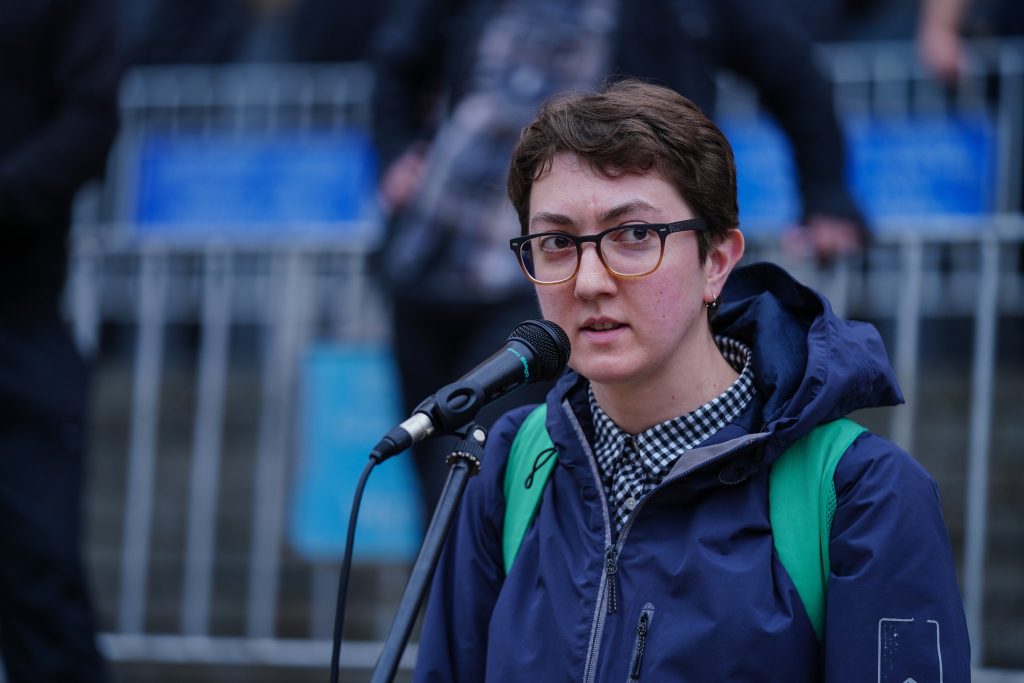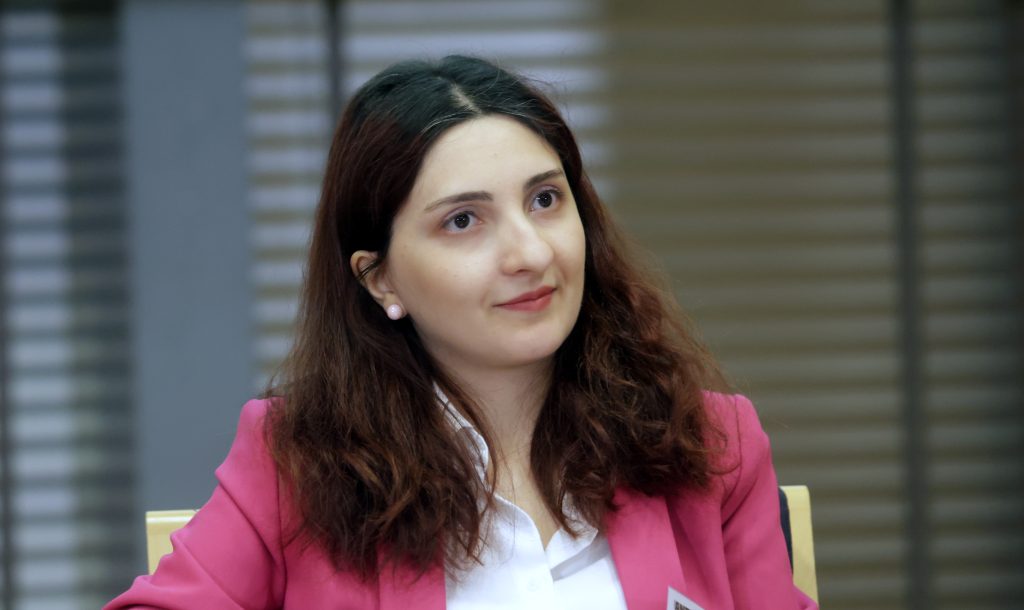«Another Russian law»: A detailed look at how Georgia plans to restrict LGBT+ rights (and more)
LGBTQ rights in Georgia
Ahead of the parliamentary elections scheduled for October 2024, the Georgian government is attempting to distract the public from real issues in various ways. One such method is shifting attention to homophobic constitutional amendments initiated by the ruling party, “Georgian Dream.”
October 2024 marks 12 years since the “Georgian Dream” party, founded by billionaire Bidzina Ivanishvili, came to power. The outcome of the parliamentary elections on October 26, 2024, will determine whether their rule continues for another four years or if there will be a change in power in Georgia.
Six months before the elections, “Georgian Dream” introduced several legislative initiatives, which experts and international law lawyers view as obstacles to the democratic process.
Following the controversial “Law on Transparency of Foreign Influence” (often referred to as the “foreign agents law” or “Russian law”), “Georgian Dream” has been working on another discriminatory legislative initiative—a bill prohibiting “LGBT propaganda,” essentially severely restricting the rights of the LGBT+ community in the country.
The planned “innovations” include 19 laws and corresponding amendments to the constitution.
A simple majority (76 deputies) in parliament is sufficient to change the law. However, constitutional amendments require the support of three-quarters of the deputies. “Georgian Dream” does not have that many supporters in parliament. Therefore, to “push through” the constitutional changes, they need opposition votes.
Nevertheless, “Georgian Dream” has stated that it does not expect support from the opposition. Experts believe the party is more likely to try to mobilize conservative voters. Thus, the constitutional amendment is part of “Georgian Dream’s” campaign promises.
First, the party plans to pass a package of laws for which it has enough resources.
Ban on same-sex marriages, which are already prohibited
According to Parliament speaker Shalva Papuashvili, this package of laws will “practically regulate the issue of LGBT propaganda.”
The package includes one main law, “On Family Values and Protection of Minors,” and 18 related legislative amendments. Changes are planned for the civil code, labor code, education legislation, and more.
For example, “Georgian Dream” wants to explicitly ban the registration of same-sex marriages and the adoption of children by queer people in the law, although both are already prohibited in Georgia.
Additionally, the changes further worsen the rights of transgender individuals by restricting access to sex reassignment medical services and prohibiting indicating a gender in identity documents that does not match biological sex.
The amendments also restrict freedom of speech. According to Shalva Papuashvili, it will be prohibited in educational institutions to “propagate information aimed at promoting a person’s affiliation with a gender different from their own, relationships between representatives of the same sex, or incest.”
Such information will also be banned from being broadcast on television, and it may be required to cut corresponding scenes from films.
If the law is adopted, public gatherings and demonstrations “aimed at promoting a person’s identification with a gender different from their own, same-sex relationships, or incest” will be prohibited.
“Georgian Dream” hopes to pass this package of laws in the third reading during the autumn session of parliament.
“Georgian Dream” claims that these changes are not discriminatory, do not restrict LGBT+ rights, and only pertain to “propaganda.”
However, human rights activists and lawyers strongly disagree.
What changes does “Georgian Dream” want to make to the constitution?
Since many of the changes listed above contradict the country’s constitution, “Georgian Dream” sees the solution in amending the constitution itself.
Specifically, the ruling party wants to add paragraph 3 to Article 30 of the Georgian constitution (right to marriage, rights of mothers and children): “The protection of family values and minors is ensured by the constitutional law of Georgia, which is an integral part of the constitution of Georgia.”
The draft constitutional law consists of eight points:
- Only relationships analogous to marriage, which involve a union of one genetic male and one genetic female not younger than 18 years, can be regulated by legislation.
- Adoption or guardianship of a minor is allowed only for married couples or heterosexual individuals married in accordance with the constitution and laws of Georgia.
- Any medical intervention related to changing a person’s sex is prohibited.
- Documents issued by the state or local government must only indicate male or female gender according to genetic data.
- Any decision by a government authority or private person that directly or indirectly limits the use of gender-defined concepts is invalid. This provision is intended to combat gender-neutral language, which is not a significant issue in the country and is not currently on the agenda.
- Meetings promoting same-sex family or intimate relationships, incest, adoption or guardianship of a minor by a same-sex couple or a non-heterosexual person, medical intervention related to sex change, or the non-use of gender concepts are prohibited.
- Distributing material that promotes same-sex family or intimate relationships, incest, adoption or upbringing of a minor by a same-sex couple, medical intervention related to sex change, or the non-use of gender concepts is prohibited.
- Providing information related to same-sex family or intimate relationships, incest, adoption or guardianship of a minor by a same-sex couple or a non-heterosexual person, medical intervention related to sex change, or promoting the non-use of gender concepts in the educational process of a state or private educational institution is prohibited.
Expert opinions
Experts agree that these changes are discriminatory and homophobic in both content and form.
Tamar Jakeli, director of the LGBTQIA+ organization “Tbilisi Pride,” is convinced that “Georgian Dream” is trying to make the population believe that LGBTQIA+ people in Georgia are demanding the right to marry and adopt children. In reality, this community has been struggling for survival for many years, and issues like marriage or adoption are not even on the agenda.
“They say nothing about the real problems children face, such as the lack of free lunches in schools or the fact that every third child is socially vulnerable. These people, who supposedly protect the interests of children, do nothing for their protection and development. This is all pseudo-rhetoric aimed at inciting hatred in society,” says Jakeli.

Expert opinions
Mari Kapanadze, a lawyer from the “Georgian Democratic Initiative” (GDI), points out that such constitutional changes unequivocally restrict fundamental human rights as provided by the Georgian constitution, the European Convention on Human Rights, and the International Covenant on Human Rights.
“The government is trying to divert public attention from real problems. Instead of discussing ways to address pressing social issues like poverty, unemployment, mass emigration, and others, it is provoking division and contradictions within society and deepening polarization. It employs familiar tactics of Russian disinformation, primarily attacking the LGBTQIA+ community,” says Kapanadze.
She emphasizes that the planned changes prevent queer people from exercising their fundamental rights, such as the right to dignity, the right to health, the right to information, the right to association, and more.

According to Mari Kapanadze, these changes create a separate legal regime for LGBT+ individuals, which is discriminatory:
“Such regulation will contribute to the marginalization and stigmatization of queer people due to their sexual orientation and gender identity. This severe restriction of LGBTQ+ rights will heighten homophobic sentiments and lead to increased threats, bullying, and discrimination against them.”
Kapanadze also highlights that the proposed changes are so vague and broad that the government could interpret any word, artwork, or media product as “popularization” and “propaganda”:
“The government is trying to intrude into one of the most private, intimate spaces of people and determine which topics are forbidden to discuss, share information about, etc.”
According to the lawyer, these restrictions affect not only LGBT+ individuals but also journalists, artists, educational institutions, and anyone or any organization that discusses this topic in any context, including personal development or reproductive health.
“Another Russian Law”
No credible research proves the existence of “LGBT propaganda” in Georgia. Even in sociological surveys, this topic is not mentioned as an important issue for the country.
At the same time, the term “LGBT propaganda” is actively used in Russia as a key message in its anti-Western campaign.
Russia already has a law similar to the homophobic initiative of “Georgian Dream.” Hungary, Nigeria, and Belarus have also passed similar laws, each provoking sharp international criticism.
“Such regulation first appeared in Russia in 2010, and over time, many laws were amended. The final law was adopted in 2022. The restrictions extend to all areas, including the internet, where any information related to homosexuality and gender change is subject to prohibition, blocking, and removal.
Notably, the main argument of the Russian government when adopting the law was the protection of ‘traditional values’,” says Mari Kapanadze.
Thus, many in Georgia have already labeled this bill as “another Russian law.”
Kapanadze warns that approving such changes in Georgia will bring the country closer to an authoritarian regime and make Georgia’s integration into the European Union practically impossible.
Tamar Jakeli also believes that the “Georgian Dream” party is not based on any clear ideology, even a conservative one.
“This is populism, which is gradually taking a fascist form, and all of this is happening to maintain power. I mean, if tomorrow Bidzina Ivanishvili feels it is necessary to strengthen his power, he might even organize a pride parade himself,” says Tamar Jakeli.
Public discussions
“Georgian Dream” began public discussions of the mentioned constitutional amendments on April 22. This is a formal procedure necessary for making constitutional amendments.
During these discussions, representatives of the ruling party and affiliated deputies travel to the country’s regions, gather in meeting halls, and inform the population about the proposed changes.
In practice, these gatherings have become platforms for voicing and spreading homophobic messages.
The first meeting was broadcast live and became the subject of memes and ridicule on social media. After this, the parliament’s press service decided to only send meeting protocols to the media.
At a meeting in the city of Kutaisi, representatives of “Georgian Dream” were asked whether a person who had already adopted a child could form a couple with someone of the same sex. Instead of answering, Shalva Papuashvili laughed and said that parliament “really needs such a person” as the questioner.
Another question concerned the “expertise” of people working in public services, questioning how those working in public service, schools, and government, “who might have deviations,” would be controlled.
At another meeting, the chairman of the parliamentary legal committee, Anri Okhanashvili, told the audience that “LGBT propaganda” already works everywhere in hidden forms, such as when representatives of some airlines address passengers not as “ladies and gentlemen” but as “dear passengers.”
A hit in Georgian internet culture was the phrase from constitutionalist Tengiz Sharmanashvili: “We welcome you, ladies and gentlemen, as long as it is not forbidden to say ‘ladies and gentlemen.'”
It is unclear who forbids “Georgian Dream” or citizens from saying these words, but this narrative aligns with Russian disinformation and propaganda messages.
The online media outlet “Publika” collected and disseminated questions asked in different cities, which were essentially identical. This led the public to suspect that these questions were pre-prepared by the government. Footage from the meetings also shows some participants reading questions from their mobile phones (although this does not prove they were written by the authorities).
On the other hand, critical questions were almost nonexistent at these meetings. One reason could be that critically-minded citizens were simply not allowed to attend. This happened with teacher Mishiko Mumladze from Kutaisi. He wrote about this on social media, after which he disappeared for four hours and later reported being detained on a fabricated charge of hooliganism.
May 17 was supposed to be the day for the final consideration of constitutional amendments in parliament, but the debates have not yet taken place. The exact date for considering the legislative changes is also unknown.


















